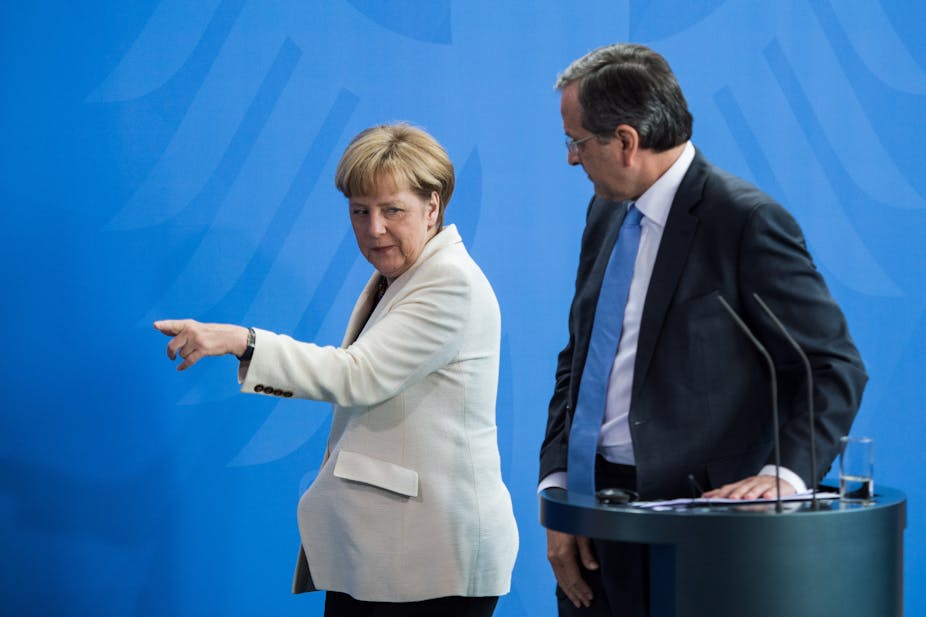A joke that is often told among European leftists these days portrays the current situation between Germany and Greece quite accurately. An officer at the passport control at Athens airport asks a tourist: “What is your nationality?” He replies: “German.”
The officer then asks: “Occupation?”
Whereupon the tourist replies: “No, only visiting.”
The German tourist stands for the ambiguous position that the government in Berlin takes towards Greece: today the Germans might be just visiting, but Berlin’s intervention in Greece’s domestic politics might well have permanent effects.
Your money or your life
Only weeks before legislative elections in Athens, German politicians and press are confronting Greek voters with a choice that can more or less be rendered as “your money or your life”: vote for the status quo, or risk being kicked out of the eurozone.
Syriza, which is performing well in pre-election polls, demands a cancellation of a big part of the country’s crushing debts. In the run-up to the election, Der Spiegel reported that Angela Merkel was ready to accept the exit of Greece from the eurozone if a new Greek government would not hold tight to austerity measures; a German government official was quoted saying that “resourceful lawyers will find a way” to kick Greece out.
Greece was confronted with another non-choice three years ago. Former Greek prime minister George Papandreou suggested holding a referendum on the EU bailout package. Merkel and former French prime minister Nicolas Sarkozy reacted promptly and threatened to suspend their financial warrents for Greece. The humiliated Papandreou could not keep his promise to hold a referendum in the face of their opposition, and his tenure was soon over.

But Syriza’s leaders have made it absolutely clear they have no intention of leaving the euro. Their promises focus on the domestic realm: improving the health care for those that suffered most in the crisis, introducing a minimum wage, and raising taxes on the rich.
Meanwhile, the party’s demand for debt cancellation worries the German political elite less than it would have a couple of years ago. This time, rather than being bailed out, Greece could simply be asked to leave.
Double standard
A glance at history immediately clarifies the real difference between “good” and “bad” debts. The first countries to break the Maastricht Treaty, which bound all European signatories to keep their annual deficits below 3% of GDP, were Germany and France. At that stage in the early 2000s, and for those countries, rigid financial discipline was deemed narrow-minded.
As Der Spiegel recounts, the Franco-German behaviour at the time was resolute: “Determined not to submit to sanctions, [they] managed to secure a majority in the EU’s Council of Economic and Finance Ministers to cancel the European Commission’s sanction procedure.”
Conversely, Greek political scientist Yannis Stavrakakis remembers how his country became “overnight” the “sick man of Europe, a bête noire to be ridiculed, condemned and disciplined in the most severe way”. As he sees it, debt is being used as a tool in today’s Euro crisis “to threaten, subject, and control” countries that do not want to adhere to austerity politics made in Germany.
There are some voices in Germany taking a more circumspect line. The government’s chief economist, Marcel Fratzscher, recently floated the idea that Germany “should probably reduce Greece’s public debt to half, which means €120 billion should be written off”. But he also acknowledged that this would harm Germany, and is highly unlikely ever to happen.
On January 25, the Greeks will decide who is going to become their next president, but the German government has already decided who it shouldn’t be. How sad that Germany’s contemporary politics are putting in jeopardy the very European democracy that they once helped build.

